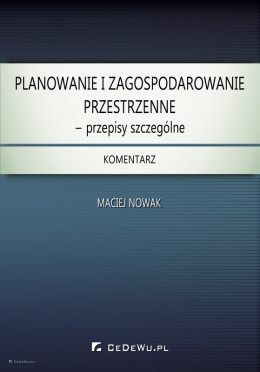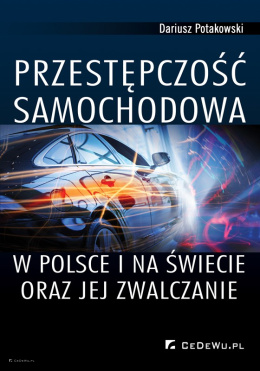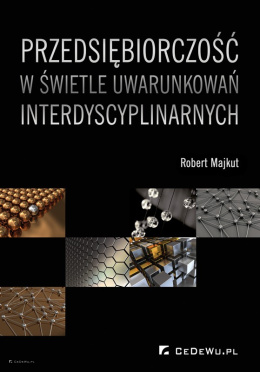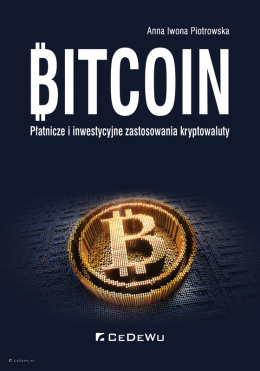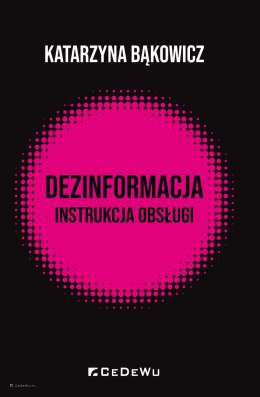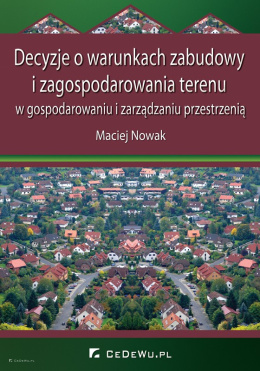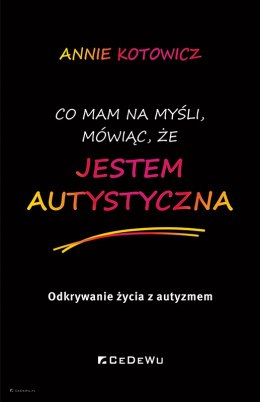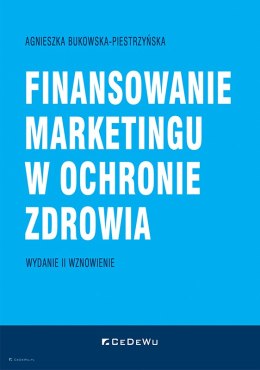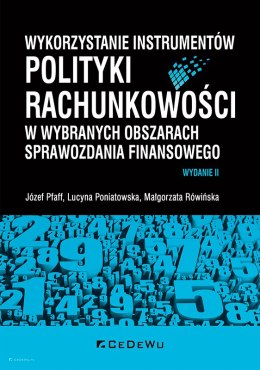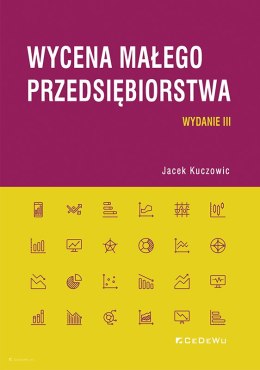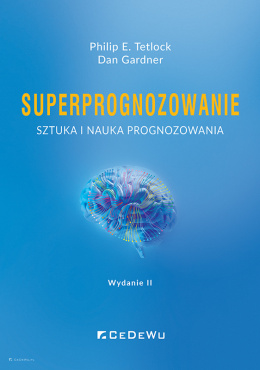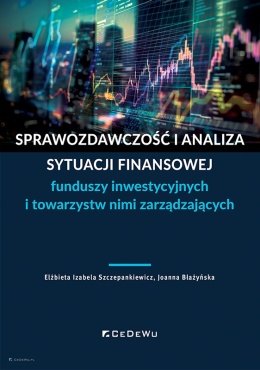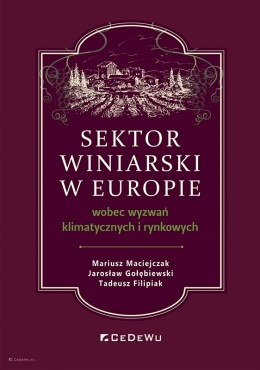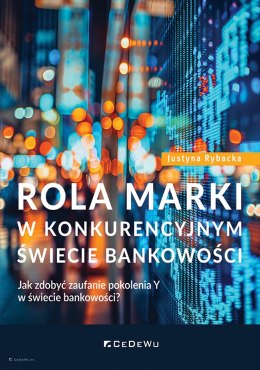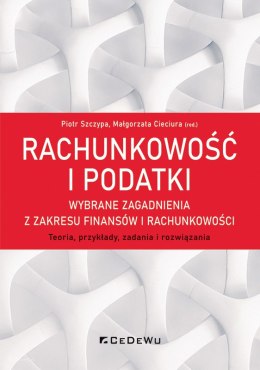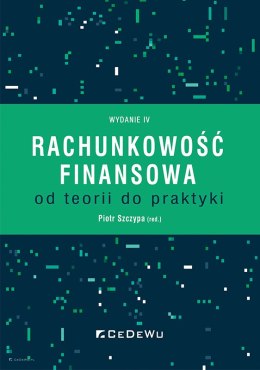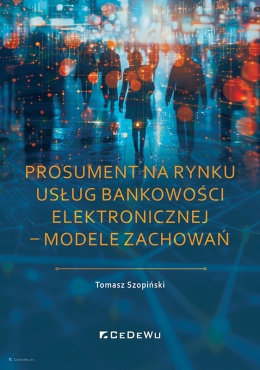-
Koszyk jest pusty
-
x

-
Koszyk jest pusty
-
x
- Kategorie
-
Zrównoważony model biznesu przedsiębiorstwa uzdrowiskowego. Model działalności turystyczno-leczniczej w uzdrowiskach w okresie g
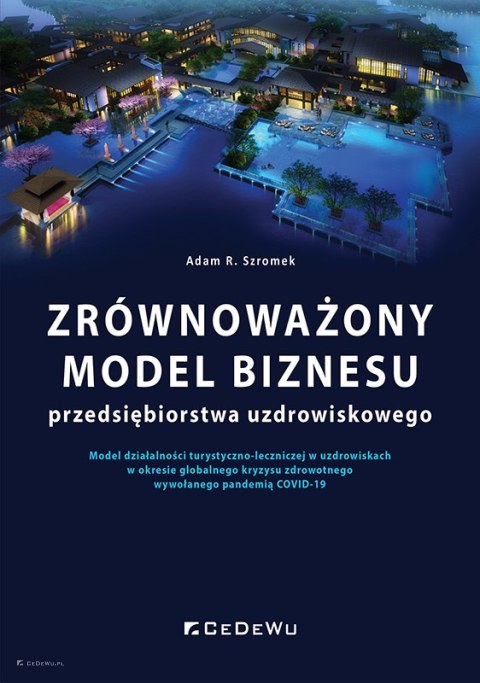
Działalność turystyczno-lecznicza prowadzona w uzdrowiskach opiera się m.in. na kuracjach wykorzystujących surowce naturalne oraz lecznicze właściwości miejscowego klimatu. Fakt ten sprawia, że ma ona ścisły związek z przyrodą, poprzez liczne punkty styczne i bezpośrednie interakcje oparte właśnie na sferze wykorzystania zasobów naturalnych oraz stałym kontakcie turysty ze środowiskiem naturalnym. Pociąga to za sobą liczne konsekwencje, gdyż zachodzące zmiany klimatyczne i zaburzenia w ekosystemach oraz bioróżnorodności oddziałują na tę formę działalności znacznie bardziej intensywnie, niż ma to miejsce w przypadku innych form turystyki. Problem ten nie pozostaje bez związku z kształtem współczesnych modeli biznesu uzdrowiskowego. Książka prezentuje koncepcję zrównoważonego modelu biznesu przedsiębiorstwa uzdrowiskowego prowadzącego działalność turystyczno-leczniczą w zgodzie z celami zrównoważonego rozwoju. Elementem integrującym proponowane wartości w zrównoważonym modelu biznesu jest Propozycja Wartości Zrównoważonej. W toku prowadzonych badań Autor dokonuje przeglądu zrównoważonych działań w wybranych przedsiębiorstwach uzdrowiskowych, a także diagnozuje działalność tych zakładów w okresie pandemii COVID-19 oraz wskazuje poszerzenie działań zrównoważonych o prewencyjną rolę tych zakładów w okresie zagrożenia epidemicznego. Książka zawiera przykłady schematów zrównoważonego modelu biznesu oraz modeli biznesu z krytycznym profilem działalności, uruchamianym w okresie kryzysu. Do książki dołączono schematy wspomagające konstrukcję własnych modeli biznesu turystycznego oraz opisano aplikację do generowania modeli biznesu przedsiębiorstwa uzdrowiskowego.
| Wysyłka w ciągu | 24 godziny |
| Kod kreskowy | |
| ISBN | 978-83-8102-250-7 |
| EAN | 9788381022507 |
Książka prezentuje koncepcję zrównoważonego modelu biznesu przedsiębiorstwa uzdrowiskowego prowadzącego działalność turystyczno-leczniczą w zgodzie z celami zrównoważonego rozwoju. Elementem integrującym proponowane wartości w zrównoważonym modelu biznesu jest Propozycja Wartości Zrównoważonej. W toku prowadzonych badań Autor dokonuje przeglądu zrównoważonych działań w wybranych przedsiębiorstwach uzdrowiskowych, a także diagnozuje działalność tych zakładów w okresie pandemii COVID-19 oraz wskazuje poszerzenie działań zrównoważonych o prewencyjną rolę tych zakładów w okresie zagrożenia epidemicznego.
Książka zawiera przykłady schematów zrównoważonego modelu biznesu oraz modeli biznesu z krytycznym profilem działalności, uruchamianym w okresie kryzysu. Do książki dołączono schematy wspomagające konstrukcję własnych modeli biznesu turystycznego oraz opisano aplikację do generowania modeli biznesu przedsiębiorstwa uzdrowiskowego.
Wprowadzenie 7
Rozdział 1
Działalność turystyczno-lecznicza w uzdrowiskach i jej uwarunkowania w okresie pandemii COVID-19 15
1.1. Działalność zakładów uzdrowiskowych 15
1.2. Uwarunkowania kryzysowe przedsiębiorstw turystycznych związane z zagrożeniami epidemiologicznymi wywołanymi pandemią wirusa SARS-CoV-2 26
1.2.1. Pandemia koronawirusa SARS-CoV-2 26
1.2.2. Turystyka w czasie pandemii COVID-19 33
Rozdział 2
Modele biznesu i zrównoważone modele biznesu 39
2.1. Modele biznesu 40
2.2. Zrównoważone modele biznesu 44
2.3. Propozycja wartości zrównoważonej 53
Rozdział 3
Badania nad modelami biznesu w turystyce w kontekście nowych wyzwań 61
3.1. Badania w zakresie modeli biznesu w działalności turystyczno-leczniczej 61
3.2. Turystyka zrównoważona 66
Rozdział 4
Działalność zrównoważona przedsiębiorstw uzdrowiskowych w czasie pandemii COVID-19 - wyniki badań własnych 75
4.1. Metodyka badań 75
4.2. Wyniki badań empirycznych w polskich uzdrowiskach 78
4.2.1. Rola zakładu w przeciwdziałaniu pandemii SARS-CoV-2 78
4.2.2. Zmiany w działalności uzdrowiskowej i w modelach biznesu uzdrowiskowego 80
4.2.3. Zrównoważone działania zakładu uzdrowiskowego 85
Rozdział 5
Zrównoważony model biznesu uzdrowiskowego 95
5.1. Standardowy model biznesu przedsiębiorstwa uzdrowiskowego 101
5.2. Zrównoważony model biznesu przedsiębiorstwa uzdrowiskowego 103
5.3. Krytyczny profil działalności 110
5.4. Transformacja etapowa modelu biznesu 118
Rozdział 6
Generator inspiracji zrównoważonych modeli biznesu 121
6.1. Moduł teoretyczny 124
6.2. Moduł badawczy 126
6.3. Generator inspiracji 128
Zakończenie 131
Bibliografia 137
Spis rysunków 151
Spis tabel i załączników 152
Załączniki 153
ADAM R. SZROMEK - profesor tytularny w dziedzinie nauk społecznych w dyscyplinie nauk o zarządzaniu i jakości, członek Rady Dyscypliny Nauk o Zarządzaniu i Jakości Politechniki Śląskiej oraz członek Komitetu Polskiej Akademii Nauk (PAN). Autor wielu publikacji naukowych z zakresu zarządzania w turystyce i lecznictwie uzdrowiskowym. Kierownik i wykonawca projektów naukowo-badawczych nadzorowanych przez Narodowe Centrum Nauki w Krakowie. Członek redakcji czasopism naukowych: Sustainability, Journal of Tourism and Recreation, Current Issuess of Tourism Research. Uczestnik kursów i szkoleń współczesnego biznesu, Akademii Przywództwa Global Leadership Summit i certyfi katów Unii Europejskiej w zakresie przedsiębiorczości. Autor powieści przygodowych.
Recenzenci:
Dr hab. Daniel Puciato, prof. Politechniki Opolskiej
Dr hab. Piotr Romaniuk, prof. Śląskiego Uniwersytetu Medycznego w Katowicach
Aagaard A., Saari U., Mäkinen J.S., Mapping the types of business experimentation in creating sustainable value: A case study of cleantech start-ups, Journal of Cleaner Production, 2021, 279,123182.
Abdelkafi N., Tauscher K., Business models for sustainability from a system dynamics perspective, Organ. Environ., 29 (2016), pp. 74-96.
Agarwal R., Mittal N., Patterson E., Giorcelli M., Evolution of the Indian LPG industry: Exploring conditions for public sector business model innovation, Research Policy 50 (2021) 104196.
Aghaei H., Naderibeni N., Karimi A., Designing a tourism business model on block chain platform, Tourism Management Perspectives 39 (2021) 100845.
Al-Debei M., El-Haddadeh R., Avison D., Defining the Business Model in the New World of Digital Business, Proceedings of the Fourteenth Americas Conference on Information Systems, Toronto, ON, Canada August 14th-17th 2008.
Ali-Knight J., Yoga tourism. Wellness and tourism, New York, NY: Cognizant Communication Corporation 2009, 84-95.
American Enterprise Institute, National coronavirus response: A road map to reopening, 2020, Strona internetowa: https://www.aei.org/wp-content/uploads/2020/03/National-Coronavirus-Response-a-Road-Map-to-Recovering-2.pdf (dostęp do strony: 1.03.2021).
Amit R., Zott Ch., Creating Value Through Business Model Innovation. Could your company benefit from a new business model?, Consider these six questions. MIT Sloan Management Review. March 20, 2012.
Aquino R.S., Lück M., Schänzel H.A., A conceptual framework of tourism social entrepreneurship for sustainable community development, Journal of Hospitality and Tourism Management 37 (2018) 23-32.
Arellano A., Patients without borders: The emergence of medical tourism, International Journal of Health Services (2007), 37(1), 193-198.
Baum T., Cheung C., Kong H., Kralj A., Mooney S., Nguyễn Thị Thanh H., Ramachandran S., Dropulić Ružić M., Siow M., Sustainability and the Tourism and Hospitality Workforce: a thematic analysis. Sustainability 8, (2016), 809.
Bertella G., Re-thinking sustainability and food in tourism, Annals of Tourism Research 84 (2020), 103005.
Bhatti S.H., Santoro G., Khan J., Rizzato F., Antecedents and consequences of business model innovation in the IT industry, Journal of Business Research 123 (2021), 389-400.
Bland D.J., Osterwalder A., Testowanie pomysłów biznesowych, Biblioteka technik eksperymentacyjnych. Wyd. Helion, WIDLEY, 2020.
Bocken N.M.P., Short S., Rana P., Evans S., A value mapping tool for sustainable business modelling Corporate Governance, 2013, 13, 5, pp. 482-497. DOI: http://dx.doi.org/10.1108/CG-06-2013-0078.
Bocken N.M.P., Short S.W., Rana P., Evans S., A literature and practice review to develop sustainable business model archetypes, J. Clean. Prod. (2014), 65, 42-56.
Bodenau A., Innovative Value of Sustainable Tourism Practices, [w:] Innovation and value creation in experience based tourism, The 22nd Nordic Symposium in Tourism and Hospitality Research, September 24 27, 2013, Bodø/Lofoten. P. 23-25
Boluk K.A., Cavaliere C.T., Duffy L.N., A pedagogical framework for the development of the critical tourism citizen, J. Sustainable Tour. 27 (7), (2019), 865-881.
Boons F., Lüdeke-Freund F., Business models for sustainable innovation: State of the art and steps towards a research agenda Journal of Cleaner Production 45, (2013), 9-19.
Burstrom T., Parida V., Lahti T., Wincent J., AI-enabled business-model innovation and transformation in industrial ecosystems: A framework, model and outline for further research, Journal of Business Research 127 (2021) 85-95.
Bushell R., Sheldon P.J. (eds.), Wellness and tourism – mind, body, spirit, place. Innovation and tourism, Cognizant Communication Corporation, New York 2009, p. 7-8.
Butler R.W., The concept of a Tourism Area Life Cycle of Evolution, Canadian Geographer. No 1980, 24, p. 5-12.
Butler R.W., Tourism: An evolutionary perspective, [w:] J.G. Nelson, R. Butler, G. Wall (Eds.), Tourism and sustainable development: A civic approach. (2nd ed.). Waterloo, Canada: University of Waterloo 1999.
Butler R.W., Szromek A.R., Incorporating the Value Proposition for Society with Business Models of Health Tourism Enterprises, Sustainability 2019, 11, 6711.
Campbell-Kelly M., Garcia-Swartz D., Lam R., Yang Y., Economic and business perspectives on smartphones as multi-sided platforms, Telecommunications Policy. 2015, 39, 8, pp. 717-734.
Capon V., The economic and environmental effects of seasonality of tourism: A look at solid waste, Ecological Economics. 2022, 192, 107262.
Cassella C., The Earliest Cherry Blossom Season in 1,200 Years Is Here Due to Climate Change, Science alert – Environment, 30 March 2021. https://www.sciencealert.com/japan-s-cherry-blossoms-burst-into-color-sooner-than-they-have-in-1-200-years (dostęp: 16.11.2021).
Chandra P., Kumar J., Strategies for developing sustainable tourism business in the Indian Himalayan Region: Insights from Uttarakhand, the Northern Himalayan State of India, Journal of Destination Marketing & Management 19 (2021) 100546.
Charmaz K., Teoria ugruntowana. Praktyczny przewodnik po analizie jakościowej, PWN 2009, s. 260.
Chesbrough H., Rosenbloom R., The role of the business model in capturing value from innovation: evidence from Xerox Corporation’s technology spin-off companies, For. Ind. 11, (2002) 529-555.
Chien G.C.L., Law R., The impact of the Severe Acute Respiratory Syndrome on hotels: a case study of Hong Kong, Hospitality Management 22 (2003) 327-332.
Cini V., Drvenkar N., Banožić M., Health Tourism Development in Continental Croatia, [w:] Barković D., Runzheimer B. (ed.), Interdisciplinary Management Research XI, Faculty of Economics in Osijek, Hochshule Pforzheim University, ISSN 1847-0408, 2015, pp. 1052-1065.
Circo C.J., Does Sustainability Require a New Theory of Property Rights? Forthcoming in the Kansas Law Review. 2009, 58, 1, 1-51.
Clark T., Hazen B., Pigneur Y., Business models for teams, Portfolio/Penguin,New York USA 2016.
Connell J., Medical tourism: Sea, sun, sand, and … surgery, Tourism Management, 2006, 27, 1093-1100.
Cooper Ch., Essentials of Tourism, SAGE, Los Angeles 2021.
Craig C.A., Feng S., A temporal and spatial analysis of climate change, weather events, and tourism businesses, Tourism Management 67 (2018) 351-361.
Cristian-Constantin D., Radu-Daniel P., Daniel P., Georgiana C.L., Igor S., The Role of SPA Tourism in the Development of Local Economies from Romania, Procedia Economics and Finance. 23, 2015, 1573-1577.
Cunha C., Kastenholz E., João Carneiro M., Entrepreneurs in rural tourism: Do lifestyle motivations contribute to management practices that enhance sustainable entrepreneurial ecosystems?, Journal of Hospitality and Tourism Management 44 (2020) 215–226.
Dabbous A., Tarhini A., Does sharing economy promote sustainable economic development and energy efficiency? Evidence from OECD countries. Journal of Innovation & Knowledge. 2021, 6, 1, 58-68.
Dedeke A.N., Creating sustainable tourism ventures in protected areas: An actornetwork theory analysis, Tourism Management 61 (2017) 161-172.
Delmas M.A., Burbano V.C., The drivers of greenwashing, California Management Review. 2011, 54, pp. 64-87.
Diaconu M., Dutu A., Business model in the hospitality industry, from traditional to open innovation, Scientific Bulletin – Economic Sciences, 2017, 16, 1, 3-10.
Dodds R., Butler R.W., Overtourism. Issues, realities and solutions. Gruyter Stud. Tour. 2019, 1, 1-22
Doganova L., Eyquem-Renault M., What do business models do? Innovation devices in technology entrepreneurship. Research Policy. 38, 2009, 1559-1570
Dryglas D., Salamaga M., Segmentation by push motives in health tourism destinations: A case study of Polish spa resorts. Journal of Destination Marketing & Management. 2018, 9, pp. 234-246.
Dryglas D., Salamaga M., Applying destination attribute segmentation to health tourists: A case study of Polish spa resorts, Journal of Travel & Tourism Marketing, 2017, 34, 4, 503-514.
Elkington J., Cannibals with forks: the triple bottom line of 21st century business, Oxford: Capstone 1999. ISBN 9780865713925. OCLC 963459936.
European Commission - Press release, 2021 Commission work programme – from strategy to delivery. Brussels, 19 October 2020, https://ec.europa.eu/commission/presscorner/api/files/document/print/en/ip_20_1940/IP_20_1940_EN.pdf (dostęp do strony: 30.10.2021).
Evans S., Vladimirova D., Holgado M., Van Fossen K., Yang M., Silva E., Barlow C., Business model innovation for sustainability: towards a unified perspective for creation of sustainable business models, Bus. Strat. Environ. (2017), 10.1002/bse.1939.
Fan Y.Y., Jamison D.T., Summers L.H., Pandemic risk: how large are the expected losses? Bulletin of the World Health Organization, 96 (2), 2018, 129-134.
Feng J., Liu Z., Feng L., Identifying opportunities for sustainable business models in manufacturing: Application of patent analysis and generative topographic mapping, Sustainable Production and Consumption 27 (2021) 509-522.
Figueiredo de Faria V., Pereira Santos V., Hadad Zaidan F., The Business Model Innovation and Lean Startup Process Supporting Startup Sustainability, Procedia Computer Science 181 (2021) 93-101.
Gahlinger, P. (2008), The Medical Tourism Travel Guide: Your Complete Reference to Top-Quality, Low-Cost Dental, Cosmetic, Medical Care & Surgery Overseas (North Branch: Sunrise River Press).
Gallo C., The Virologist Who Created A ‘Swiss Cheese’ Metaphor To Explain The Pandemic Has A Message For Educators, Forbes, Dec 10, 2020. Strona internetowa: https://www.forbes.com/sites/carminegallo/2020/12/10/the-virologist-who-created-a-swiss-cheese-metaphor-to-explain-the-pandemic-has-a-message-for-educators/?sh=3c940f0d6335 (dostęp do strony: 1.04.2021).
Gaz w Praktyce, Strona internetowa: https://gozwpraktyce.pl/slownik/potrojna-linia-graniczna/ (dostęp do strony: 18.10.2021).
Geissdoerfer M., Bocken N.M., Hultink E.J. (2016), Design thinking to enhance the sustainable business modelling process – A workshop based on a value mapping process, J. Clean. Prod., 135, 1218-1232.
Geissdoerfer M., Vladimirova D., Evans S., Sustainable business model innovation: A review, J. Clean. Prod. 2018, 198, 401-416.
Gkoumas A., Evaluating a standard for sustainable tourism through the lenses of local industry, Heliyon 5 (2019) 02707.
Glaser B.G., Strauss A.L., Odkrywanie teorii ugruntowanej, Zakład Wydawniczy NOMOS, Kraków 2009.
Global Sustainable Tourism Council (2019), GSTC Criteria for hotels. GSTC Criteria for tour operators, GSTC Criteria for destinations. http://www.gstcouncil.org/gstc-criteria/ (dostęp do strony: 1.11.2021)
Główny Urząd Statystyczny, Działalność lecznicza zakładów lecznictwa uzdrowiskowego i stacjonarnych zakładów rehabilitacji leczniczej w 2018 r., Główny Urząd Statystyczny 2019, s. 1-5. Strona: https://stat.gov.pl/download/gfx/portalinformacyjny/pl/defaultaktualnosci/5513/12/3/1/dzialalnosc_lecznicza_zakladow_lecznictwa_uzdrowiskowego_i_stacjonarnych_w_2018.pdf (dostęp do strony: 17.03.2021).
Goodrich J., Goodrich G., Health-care Tourism: An Exploratory Study Tourism Management 8, 1987, pp. 217-222.
Gössling S., Scott D., Hall C.M., Pandemics, tourism and global change: a rapid assessment of COVID-19, Journal of Sustainable Tourism 2020, Vol. 29, No. 1, 1-20.
Grabowska S., Model biznesu 4.0. Architektura, tworzenie wartości, ocena konkurencyjności i efektywności, TNOiK. Toruń 2021, s. 216.
Grénman M., Räikkönen J., Well-being and wellness tourism – Same, same but different. Conceptual discussions and empirical evidence, Matkailututkimus 11:1,2015, 7-25.
Haaker T., Thi Minh Ly P., Nguyen-Thanh N., Thi Hong Nguyen H., Business model innovation through the application of the Internet-of-Things: A comparative analysis, Journal of Business Research 126 (2021) 126–136.
Hall C.M., Constructing sustainable tourism development: The 2030 agenda and the managerial ecology of sustainable tourism. J. Sustainable Tour. 27, 2019, 1044-1060.
Hansen M., Fyall A., Macpherson R., Horley J., The role of occupational therapy in accessible tourism, Annals of Tourism Research. 2021, 103145.
Hardy A., Pearson L.J., Examining stakeholder group specificity: An innovative sustainable tourism approach, Journal of Destination Marketing & Management 8 (2018) 247-258.
Harries J., Brindley H., Sagoo P. et al., Increases in greenhouse forcing inferred from the outgoing longwave radiation spectra of the Earth in 1970 and 1997, Nature 410, 355,357 (2001).
Hart S.L., Milstein M.B., Creating sustainable value, Acad. Manag. Exec. 17 (2), 2003, 56-69.
Hatchett R.J., Mecher C.E., Lipsitch M.,Public health interventions and epidemic intensity during the 1918 influenza pandemic, Proceedings of the National Academy of Sciences , 104 (18), 2007, 7582-7587.
Helble M., The movement of patients across borders: Challenges and opportunities for public health, Bulletin World Health Organization, 2011, 89, 68-72.
Henderson J.C., Ng A., Responding to Crisis: Severe Acute Respiratory Syndrome (SARS) and Hotels in Singapore, Int. J. Tourism Res. 6, 411-419 (2004).
Herman K., Szromek A.R., Przedsiębiorstwo turystyczne w ujęciu modelowym, Model biznesu w przedsiębiorstwie turystyki dziedzictwa przemysłowego., Wyd. Pol. Sl., Gliwice 2018, s. 36.
Higgins-Desbiolles F., Sustainable tourism: Sustaining tourism or something more?, Tourism Management Perspectives 25 (2018) 157-160.
Hiteva R., Foxon T.J., Beware the value gap: Creating value for users and for the system through innovation in digital energy services business models, Technological Forecasting & Social Change 166 (2021) 120525.
Homrich A.S., Theodoro D.S., Monteiro de Carvalho M., PSS creating business for sustainability: the Brazilian Olive Oil case in Mantiqueira Community, Procedia CIRP 64 (2017) 405-410.
Horwood S., Anglim J., Mallawaarachchi S.R., Problematic smartphone use in a large nationally representative sample: Age, reporting biases, and technology concerns, Computers in Human Behavior. 2021, 122, 106848.
Hossain M., Frugal innovation and sustainable business models, Technol. Soc. 2021, 64, 101508.
Hughes, E., Scheyvens, R. Corporate social responsibility in tourism post-2015: a Development First approach, Tour. Geogr. 18 (5), 2016, 469-482.
Hung Leea T., Jan F.-H., Can community-based tourism contribute to sustainable development? Evidence from residents’ perceptions of the sustainability, Tourism Management 70 (2019) 368-380.
Inversini A., Xiang Z., Fesenmaier D.R., New media in travel and tourism communication: toward a new paradigm, https://inversini.files.wordpress.com/2008/01/27_cont_9783110266535_inversini_xiang_fesenmaier1.pdf (dostęp do strony: 20.10.2021).
Jabłoński A., Jabłoński M., Modele biznesu przedsiębiorstw. Perspektywy rozwoju – ujęcie koncepcyjne, CeDeWu, Warszawa 2019.
Jabłoński A., Jabłoński M., Modele biznesu w cyklu życia przedsiębiorstwa – wyzwania strategiczne, Przegląd Organizacji. 2013, 9, 17-21.
Jan Paweł II, Encyclical Sollicitudo Rei Socialis. Vatican December 30 1988. Strona internetowa: http://www.vatican.va/content/john-paul-ii/en/encyclicals/documents/hf_jpii_enc_30121987_sollicitudo-rei-socialis.html (dostęp do strony: 01.03.2021).
Januszewska M., Nawrocka E., Oparka S., Turystyka uzdrowiskowa, turystyka w uzdrowiskach – problemy definicyjne, [w:] A.R. Szromek, Uzdrowiska i ich znaczenie w gospodarce turystycznej, Proksenia, Kraków 2010, s. 100.
Januszewska M., Turystyka zdrowotna w uzdrowiskach polskich i niemieckich, Prace Naukowe Akademickiego Centrum Koordynacyjnego Euroregionu Nysa, 11, Liberec-Zittau-Jelenia Góra, 2005, s. 88.
Johnson W., Christensen C., Kagerman H., Reinventing Your Business Model, Harvard Business Review, 1996, p. 57-68.
Jovane F., Yoshikawa H., Alting L., Boër C.R., Westkamper E., Williams D., Tseng M. i in., The incoming global technological and industrial revolution towards competitive sustainable manufacturing, CIRP Annals – Manufacturing Technology, 2008, 57, 2, pp. 641-659.
Kapczyński A., Szromek A.R., Hypotheses concerning the development of Polish spas in the years 1949-2006, 2008 Vol. 29 iss. 5, pp. 1035-1037.
Kardas M., Pojęcia i typy modeli biznesu, [w:] Klincewicz K. (red.), Zarządzanie, organizacje i organizowanie – przegląd perspektyw teoretycznych, Warszawa, 2016, s. 298-318
Kasagranda A., Gurňák D., Spa and Wellness Tourism in Slovakia (A Geographical Analysis), Czech Journal of Tourism. 01, 2017, 27-53.
Keen P., Quereshi S., Organizational Transformation through Business Models: A Framework for Business Model Design, Information Systems and Quantitative Analysis Faculty Proceedings & Presentations, 2006, 43, pp. 1-10.
Kesar O., Rimac K., Medical Tourism Development in Croatia, Zagreb International Review of Economics & Business, 2011, Vol. 14, No. 2, pp. 107-134.
Kodeks pracy. Dz.U. 1974 Nr 24 poz. 141.
Komisja Europejska: Stimulating Technologies for Sustainable Development: An Environmental Technologies Action Plan for the European Union, Brussels 2004 [http://eur-lex.europa.eu/legal-content/EN/TXT /PDF/?uri=CELEX:52004DC0038&from=EN] (Access date: 15.04.2021).
Konu H., Tuohino A., Komppula R., Lake wellness: A practical example of anew service development (NSD) concept in tourism industries, Journal of Vacation Marketing, 2010. https://doi.org/10.1177/1356766709357489
Krechovská M., Tausl Prochazkova P., Sustainability and its Integration into Corporate Governance Focusing on Corporate Performance Management and Reporting, Procedia Engineering 69 (2014) 1144-1151.
Kuhn T.S., The structure of scientific revolutions (4th ed.), Chicago: University of Chicago Press 2012.
Kurek K.A., Heijman W., van Ophema J., Gędek S., Strojny J., Geothermal spas as a local development factor, the case of Poland, Geothermics 85 (2020) 101777.
Labonte R., Mohindra K., Schrecker T., The growing impact of globalization for health and public health practice, Annual Review of Public Health , 32 (1), 2011, 263-283.
Laidroo L., Koroleva E., Kliber A., Rupeika-Apoga R., Grigaliuniene Z., Business models of FinTechs – Difference in similarity? Electron. Commer. Res. Appl. 2021, 46, 101034.
Lallé B., The Management Science Researcher between Theory and Practice, Organization Studies, 2003, Vol. 24/7, p. 1097-1114.
Lanz-Kaufmann E., Muller H., Wellness Tourism: Market analysis of a special health tourism segment and implications for the hotel industry, Journal of Vacation Marketing, Vol. 7 No. 1 (2001), p. 5-17.
Larouzeea J., Le Cozeb J.-Ch., Good and bad reasons: The Swiss cheese model and its critics, Safety Science 126 (2020) 104660.
Lemus-Aguilar I., Morales-Alonso G., Ramirez-Portilla A., Hidalgo A., Sustainable Business Models through the Lens of Organizational Design: A Systematic Literature Review, Sustainability 2019, 11, 5379.
Leveson N., A new accident model for engineering safer systems, Safety Sci. 2004, 42 (4), 237-270.
Leveson N., Applying systems thinking to analyse and learn from events, Safety Sci. 2011, 49 (1), 55-64.
Loh C., Health tourism on the rise? Evidence from the balance of payments statistics, The European Journal of Health Economics 2014, 15, 759–766.
Lozano-Oyolaa M., Blancasa F.J., Gonzálezb M., Caballero R., Sustainable tourism tags to reward destination management, Journal of Environmental Management 250 (2019) 109458.
Lund J.W., Basic principles of balneology and examples in the United States. In Proceedings of the World Geothermal Congress, Antalya 2005 [za:] P. Erfurt-Cooper, M. Cooper, Health and Wellness Tourism Spas and Hot Springs, Channel View Publication, Toronto 2009, p. 15.
Mann M.E., Zhang Z., Rutherford S., Bradley R.S., Hughes M.K., Shindell D., Ammann C., Faluvegi G., Ni F., Global Signatures and Dynamical Origins of the Little Ice Age and Medieval Climate Anomaly, Science 2009, 326, 1256-1260.
Markel H., Lipman H.B., Navarro J.A., Sloan A., Michalsen J.R., Stern A.M., Cetron M.S., Nonpharmaceutical interventions implemented by US cities during the 1918-1919 influenza pandemic, JAMA 2007, 298 (6), 644-654.
Matteo D.D., Cavuta G., Enogastronomic Tourism: can it mitigate the Intangibility of the Destination? Streetfood as a new Business Model for the Management of Tourist Regions, Procedia Economics and Finance 39 (2016) 347-356.
Matthew W., Seeger T., Sellnow L., Robert R., Ulmer (1998) Communication, Organization, and Crisis, Annals of the International Communication Association, 21:1, 231-276.
Mensah J., Sustainable development: Meaning, history, principles, pillars, and implications for human action: Literature review, Cogent Social Sciences, 2019, 5:1, 1653531.
Michnowski L., Odnowiona Strategia Trwałego Rozwoju Unii Europejskiej: co z niej wynika dla Polski? Problemy Ekorozwoju. 2008, 3, 2, 89-128.
Miguéns J., Baggio R., Costa C., Social media and Tourism Destinations: TripAdvisor Case Study, Advances in Tourism Research 2008, Aveiro, Portugal, May 26-28, 2008.
Ministerstwo Zdrowia Rzeczypospolitej Polskiej, 2021. Strona internetowa: http://www2.mz.gov.pl/wwwmz/index?mr=m8&ms=698&ml=pl&mi=698&mx=0&ma=13915 (dostęp do strony: 24.02.2021)
Myers J., Sweeney T., Witmer J., The Wheel of Wellness counseling for wellness: A holistic model for treatment planning, Journal of Counseling and Development, 78(3), p. 251-266.
Nagy A., The orientation towards innovation of spa hotel management: the case of Romanian spa industry, Procedia – Social and Behavioral Sciences 124 (2014), 425-431.
Naramski M., Szromek A.R., Model sieci współpracy podmiotów turystycznych, 2018, ISBN 978-83-7880-520-5, s. 1-236.
Nguyena T.Q.T., Younga T., Johnsona P., Wearinga S., Conceptualising networks in sustainable tourism development, Tourism Management Perspectives 32 (2019) 100575.
Niäiä M., Ivanovic̈ S., Drpic̈ D., Challenges to sustainable development in Island tourism, South East Eur. J. Econ. Bus. 5, 2010, 43-53.
Nidumolu R., Prahalad C.K., Rangaswami M.R., Why sustainability is now the key driver of innovation, Harv. Bus. Rev. 2009, 87, 56–64.
Nosratabadi S., Mosavi A., Shamshirband S., Zavadskas E.K., Rakotonirainy A., Wing Chau K., Sustainable Business Models: A Review, Sustainability, 2019, 11, 1663.
Obłój K., Tworzywo skutecznych strategii, PWE, Warszawa 2002, s. 97.
OECD, Managing tourism development for sustainable and inclusive recovery, OECD Tourism Papers, 2021/01, OECD Publishing, Paris, 1-61.
Okur Ö., Heijnen P., Lukszo Z., Aggregator’s business models in residential and service sectors: A review of operational and financial aspects, Renewable and Sustainable Energy Reviews, Vol. 139, 2021, 110702.
Olson J.A., Raz A., Applying insights from magic to improve deception in research: The Swiss cheese model, Journal of Experimental Social Psychology 92 (2021) 104053.
Osterwalder A., Pigneur Y., Business Model Generation: A Handbook for Visionaries, Game Changers, and Challengers, Paperback 2010, p. 59.
Osterwalder A., The business model ontology. A proposition in a design science approach, Université de Lausanne, Lausanne 2004, Doctoral dissertation. Strona internetowa: http://www.hec.unil.ch/aosterwa/PhD/Osterwalder_PhD_BM_Ontology.pdf (dostęp do strony: 2.03.2021).
Our Word in Data, H. Ritchie, E. Ortiz-Ospina, D. Beltekian, E. Mathieu, J. Hasell, B. Macdonald, C. Giattino, M. Roser, Statistics and Research – Coronavirus Pandemic (COVID-19). Strona internetowa: https://ourworldindata.org/coronavirus (dostęp do strony: 11.03.2021)
Paquin R., The triple layered business model canvas: A tool to design more sustainable business models, Journal of Cleaner Production 135, 2016, p. 1484.
Parris-Chambers S., Health tourism well in Jamaica eTurboNews, www.travelindus-tryreview.com/news/5309 (2.05.2007).
Pasanchay K., Schott C., Community-based tourism homestays’ capacity to advance the Sustainable Development Goals: A holistic sustainable livelihood perspective, Tourism Management Perspectives 37 (2021) 100784.
Perić M., Vitezić V., Đurkin Badurina J., Business models for active outdoor sport event tourism experiences, Tourism Management Perspectives 32 (2019) 100561.
Perneger T.V., The Swiss Cheese Model of Safety Incidents: Are There Holes in The Metaphor?, BMC Health Services Research, 2005, 5:71.
Petersen E., Wilson M.E., Touch S., McCloskey B., Mwaba P., Bates M., Dar O., Mattes F., Kidd M., Ippolito G., Azhar E.I., Zumla A., Rapid spread of Zika virus in the Americas – implications for public health preparedness for mass gatherings at the 2016 Brazil Olympic Games. International Journal of Infectious Diseases, 44, 2016, 11-15.
Pocock N., Phua K., Medical tourism and policy implications for health systems: A conceptual framework from a comparative study of Thailand, Singapore and Malasia. Globalization and Health, 7(12), 2011, 1-12.
Polski Fundusz Rozwoju, Przewodnik Antykryzysowy dla Przedsiębiorców. Tarcza Antykryzysowa. Wersja 6.0, 20 lipca 2020. Strona internetowa: https://pfr.pl/dam/pfr/documents/tarcza-antykryzysowa/PFR-Przewodnik-Antykryzysowy-dla-Przedsiebiorcow.pdf (Access date: 6.03.2021).
Pongsiri M.J., Roman J., Ezenwa V.O., Goldberg T.L., Koren H.S., Newbold S.C., Ostfeld R.S., Pattanayak S.K., Salkeld D.J., Biodiversity loss affects global disease ecology, Bio Science,
59 (11), 945-954.
Popescu S.V., Swiss Cheese Model – How Infection Prevention Really Works, Infection Control TODAY, 2021, 25 (1), 20-22.
Prebensen N., Dahl J., Value co-creation significance of tourist resources, Annals of Tourism Research, Vol. 42, No. XX, 2013, pp. 240-261.
Prendeville S., Bocken N., Sustainable Business Models through Service Design, Procedia Manufacturing 8, 2017, p. 292-299.
Przecławski K., Człowiek a turystyka. Zarys socjologii turystyki, wyd. II poprawione, Albis, Kraków 1996, s. 27-30.
Puciato D., Attractiveness of municipalities in South-Western Poland as determinants for hotel chain investments, Tourism Management. 2016, 57, 245-255.
Qureshi Z.H., A Review of Accident Modelling Approaches for Complex Socio-Technical Systems. Australian Computer Society. The 12th Australian Workshop on Safety Related Programmable Systems (SCS’07), Adelaide. Conferences in Research and Practice in Information Technology (T. Cant, Ed.) 2007, Vol. 86, 1-14.
Radic, A., Crisis management in cruise tourism: A case study of Dubrovnik, AT-TIJ 2015, 8, 29-44.
Radic A., Law R., Lück M., Kang H., Ariza-Montes A., Arjona-Fuentes J.M., Han H., Apocalypse Now or Overreaction to Coronavirus: The Global Cruise Tourism Industry Crisis, Sustainability 2020, 12, 6968.
Reason J., Human Error, Cambridge: Cambridge University Press 1990. Doi:10.1017/CBO9781139062367
Reason J.T. Carthey J., De Leval M.R., Diagnosing Vulnerable System Syndrome: an essential prerequisite to effective risk management, Qual Health Care 2001, 10, 21-5.
Reason J.T., Managing the risks of organizational accidents, Aldershot, Hants, England; Brookfield, Vt., USA, Ashgate, 1997.
Reason J., Human Error: models and management, BMJ 2000, 320, 768-770.
Rhodes R., Schiano T., Transplant tourism in China: a tale of two transplants, American Journal of Bioethics 2010, 10 (2): 3-11.
Ridderstaat J., Singh D., DeMicco F., The impact of major tourist markets on health tourism spending in the United States, Journal of Destination Marketing & Management 11 (2019) 270-280.
Roberts S., The Swiss Cheese Model of Pandemic Defense, The New York Times, Health, Strona internetowa: https://www.nytimes.com/2020/12/05/health/coronavirus-swiss-cheese-infection-mackay.html?fbclid=IwAR1WrFavUCN8uyEy1elcOI8p0tsPYDJ1LlQxQqmIkEnVaXPDejHXohen86Q (dostęp do strony: 31.03.2021).
Rodríguez-Antón, J.M., Alonso-Almeida M.d.M., COVID-19 Impacts and Recovery Strategies: The Case of the Hospitality Industry in Spain, Sustainability 2020, 12, 8599.
Rosato P.F., Caputo A., Valented D., Pizzi S., 2030 Agenda and sustainable business models in tourism: A bibliometric analysis, Ecological Indicators, 2021, 121, 106978.
Rosselló-Nadal J., How to evaluate the effects of climate change on tourism, Tourism Management, 2014, 42, 344-340.
Rozporządzenie Ministra Zdrowia z dnia 13 marca 2020 r. w sprawie ogłoszenia na obszarze Rzeczypospolitej Polskiej stanu zagrożenia epidemicznego (Dz.U.2020.433)
Rozporządzenie Ministra Zdrowia z dnia 20 marca 2020 r. w sprawie ogłoszenia na obszarze Rzeczypospolitej Polskiej stanu epidemii (Dz.U.2020.491)
Schaltegger S., Hansen E., Lüdeke-Freund F., Business cases for sustainability and the role of business model innovation, Int. J. Innovat. Sustain. Dev. 2012, 6, 95-119.
Schlecht L., Schneider S., Buchwald A., The prospective value creation potential of Blockchain in business models: A delphi study, Technological Forecasting & Social Change 166 (2021) 120601.
Shafieea S., Rajabzadeh Ghatarib A., Hasanzadeha A., Jahanyanc S., Developing a model for sustainable smart tourism destinations: A systematic review, Tourism Management Perspectives 31 (2019) 287-300.
Siakwah P., Musavengane R., Leonard L., Tourism governance and attainment of the sustainable development goals in Africa, Tour. Plan. Dev. 2020, 17, 355-383.
Sigüenza C.P., Cucurachi S., Tukker A., Circular business models of washing machines in the Netherlands: Material and climate change implications toward 2050, Sustainable Production and Consumption 26 (2021) 1084-1098.
Silvius A.J.G., Schipper R., A conceptual model for exploring the relationship between sustainability and project success, Procedia Computer Science 64 (2015) 334-342.
Skare M., Soriano D.R., Porada-Rochoń M., Impact of COVID-19 on the travel and tourism industry, Technological Forecasting & Social Change 163 (2021) 120469.
Smith M., Puczkó L., Historical overview,[w:] M. Smith, L. Puczkó (Eds.), Health and wellness tourism, New York 2009, NY: Routledge.
Smith M., Puczko L., Health and Wellness Tourism, Elsevier, 2009.
Smith M.K., Diekmann A., Tourism and wellbeing, Annals of Tourism Research 66 (2017) 1-13.
Somkeatkun W., Wongsurawat W., Perceptions of the Spa Industry: An Importance Performance Analysis, Journal of Quality Assurance in Hospitality & Tourism, 2017, Vol. 18, 2017 – Issue 4, pp. 416-436.
Spar D., Reproductive Tourism and the Regulatory Map, New England Journal of Medicine 2005, 352: 531-533.
Stahel W.R., Policy for material efficiency – sustainable taxation as a departure from the throwaway society, Philosophical Transactions of the Royal Society A: Mathematical, Physical and Engineering Sciences. 2013, 371: 20110567.
Stăncioiu A.-F., Băltescu C.-A., Botoș A., Pârgaru I., Conceptual aspects regarding balneotherapy tourism marketing in Romania, Theoretical and Applied Economics. 2013, Vol. XX, No. 2(579), pp. 145-158.
Stein J.E., Heiss K., The Swiss cheese model of adverse event occurrence – Closing the holes, Seminars in Pediatric Surgery 24 (2015) 278–282.
Steppeler L., Wellness Tourism as an active Method for individual Health Promotion, VDM Verlag Dr. Muller. Saarbrucken, 2009, p. 18.
Strategyzer – Business Model Fundry AG, Strategyzer.com. Strona internetowa: https://www.strategyzer.com/canvas (dostęp do strony: 30.10.2021).
Strulak-Wójcikiewicz R., Wagner N., Łapko A., Hącia E., Applying the Business Model Canvas to Design the E-platform for Sailing Tourism, Procedia Computer Science 176 (2020) 1643-1651.
Stubbs W., Cocklin C., Conceptualizing a sustainability business model. Organ. Environ. 21, 2008, 103-127.
Su S., Larsen H., Cousijn J., Wiers R.W., Van Den Eijnden R.J.J.M., Problematic smartphone use and the quantity and quality of peer engagement among adolescents: A longitudinal study, Computers in Human Behavior. 2022, 126, 107025.
Suryoputro M.R., Sari A.D., Kurnia R.D., Preliminary study for modeling train accident in Indonesia using Swiss Cheese Model, Procedia Manufacturing 3 (2015), 3100-3106.
Swiss Cheese and Safety. Unscripted Research Blog, Search Michigan Tech - Campus Health and Safety Level: Level Three, Strona internetowa: https://www.mtu.edu/unscripted/stories/2018/february/swiss-cheese-and-safety.html (dostęp do strony: 31.03.2021) Published by Mariana Grohowski, February 26, 2018.
Szromek A.R., Model of Business Relations in Spa Tourism Enterprises and Their Business Environment, Sustainability 2020, 12, 4941.
Szromek A.R., The Sustainable Business Model of Spa Tourism Enterprise – Results of Research Carried Out in Poland. J. Open Innov. Technol. Mark. Complex. 2021, 7, 73.
Szromek A.R., Herman K., Naramski M., Sustainable development of industrial heritage tourism – A case study of the Industrial Monuments Route in Poland, Tourism Management, Vol. 83, 2021, 104252.
Szromek A.R., Model biznesu przedsiębiorstwa uzdrowiskowego. Nowoczesne ujęcie przedsiębiorstwa uzdrowiskowego z uwzględnieniem modelowania jego działalności turystyczno-leczniczej, CeDeWu. Warszawa 2019, s. 260.
Szromek A.R., Naramski M., A Business Model in Spa Tourism Enterprises: Case Study from Poland, Sustainability 2019, 11, 2880.
Szromek A.R., Romaniuk P., Hadzik A., The privatization of spa companies in Poland – An evaluation of policy assumptions and implementation, Health Policy 2016, 120 (4), 362-368.
Szromek A.R., Wskaźniki funkcji turystycznej. Koncepcja wskaźnika funkcji turystycznej i uzdrowiskowej, Wydawnictwo Politechniki Śląskiej, Gliwice, 2012, 1-233.
Szromek A.R., Wybrańczyk K., Proposal of Value for Customer of Spas: Expectations of Spa Patients and Tourist in Polish Spas, Sustainability 2019, 11, 3598.
Szromek A.R., Kruczek Z., Walas B., The Attitude of Tourist Destination Residents towards the Effects of Overtourism – Kraków Case Study, Sustainability 2020, 12, 228.
Taubenberger J.K., Morens D.M., 1918 influenza: The mother of all pandemics, Emerging Infectious Diseases, 2006, 12 (1), 15-22.
Teece D., Business models and dynamic capabilities, Long Range Planning 2017, pp. 1-10.
Tew P.J., Lu Z., Tolomiczenko G., Gellatly J., SARS: Lessons in strategic planning for hoteliers and destination marketers, Int. J. Contemp. Hosp. Manag. 2008, 20, 332–346.
The eight Millennium Development Goals (MDGs), [w:] We can end Poverty, Strona internetowa: https://www.un.org/millenniumgoals/ (dostęp 9.11.2021)
The Tourism Society, Handbook and Members List, London 1979.
Tiago F., Gil A., Stemberger S., Borges-Tiago T., Digital sustainability communication in tourism, Journal of Innovation & Knowledge 6 (2021) 27-34.
Tomić N., Košić K., Developing the Spa Assessment Model (SAM) and its application on the Kopaonik-Jastrebac spa zone (Serbia), Tourism Management Perspectives. 2020, 36, 100753.
Trong Tuana L., Rajendrana D., Rowleyb C., Cong Khaic D., Customer value co-creation in the business-to-business tourism context: The roles of corporate social responsibility and customer empowering behaviors, Journal of Hospitality and Tourism Management 39 (2019) 137-149.
Tuohino K., Komppula R., Lake wellness: Aa practical example of a new service development (NSD) concept in tourism industries, Journal of Vacation Marketing 2010, 16(2), 125-139.
Turner L., Cross-border dental care: ‘dental tourism’ and patient mobility, British Dental Journal 2008, 204: 553-554. DOI: 10.1038/sj.bdj.2009.308.
United Nations, AGENDA 21, United Nations Conference on Environment & Development Rio de Janerio, Brazil, 3 to 14 June 1992, pp. 1-351. Strona internetowa: https://sustainabledevelopment. un.org/content/documents/Agenda21.pdf (dostęp do strony: 4.10.2021)
United Nations, Report of the United Nations Conference on Environment and Development, Rio de Janeiro, 3-14 June 1992, New York, 1993, pp. 1-492. Strona internetowa: https://undocs.org/en/A/CONF.151/26/Rev.1(vol.I) (dostęp do strony: 4.10.2021).
United Nations, The United Nations Development Programme, 2016. http://www.undp.org/content/undp/en/home/sustainable-development-goals.html (dostęp do strony: 1.11.2021).
United Nations, The United Nations Development Programme, http://www.undp.org/content/undp/en/home/sustainable-development-goals.html (Access: August 1, 2020).
UNWTO World Tourism Barometer and Statistical Annex, January 2021 UNWTO World Tourism Barometer (English version) Vol. 19, No. 1, 1-42.
Urbinati A., Franzò S., Chiaroni D., Enablers and Barriers for Circular Business Models: an empirical analysis in the Italian automotive industry, Sustainable Production and Consumption 27 (2021) 551-566.
Ustawa o lecznictwie uzdrowiskowym, uzdrowiskach i obszarach ochrony uzdrowiskowej oraz o gminach uzdrowiskowych z dnia 28 lipca 2005 r. Dz.U. 2005 Nr 167 poz. 1399 oraz Dz.U. z 2020 r. poz. 1662, z 2021 r. poz. 36, 97.
Ustawa Prawo zamówień publicznych z dnia 29 stycznia 2004 r. (Dz.U. 2004 Nr 19 poz. 177, Dz.U. z 2019 r. poz. 1843 oraz z 2020 r. poz. 288, 1086). Strona internetowa: https://isap.sejm.gov.pl/isap.nsf/download.xsp/ WDU20040190177/U/D20040177Lj.pdf (Access date: 17.03.2021).
Ustawa Prawo zamówień publicznych z dnia 29 stycznia 2004 r. (Dz.U. 2004 Nr 19 poz. 177, Dz.U. z 2019 r. poz. 1843 oraz z 2020 r. poz. 288, 1086). Strona internetowa: https://isap.sejm.gov.pl/isap.nsf/download.xsp/WDU20040190177/U/D20040177Lj.pdf (Access date: 17.03.2021)
Ustawa z dnia 28 lipca 2005 r. o lecznictwie uzdrowiskowym, uzdrowiskach i obszarach ochrony uzdrowiskowej oraz o gminach uzdrowiskowych (Dz.U. 2005 r. Nr 167, poz. 1399).
Ustawa z dnia 30 sierpnia 1991 r. o zakładach opieki zdrowotnej (Dz.U. 1991 nr 91 poz. 408).
Waite M., SURF Framework for a Sustainable Economy, Journal of Management and Sustainability, 2013, 3 (4): 25.
Weaver A., Tourism, big data, and a crisis of analysis, Annals of Tourism Research 88 (2021) 103158.
Wit B., Ekologistyka w systemie zarządzania odpadami niebezpiecznymi, Towarzystwo Naukowe Organizacji i Kierowania. Stowarzyszenie Wyższej Użyteczności Dom Organizatora, Toruń 2016, s. 138.
World Bank, People, pathogens and our planet: Volume 2 – the economics of One Health, Economic And Sector Work. Report 2012 No. 69145-GLB.
World Health Organization, Origin of SARS-CoV-2, 26 March 2020, pp. 1-2. Strona internetowa: WHO/2019-nCoV/FAQ/Virus_origin/2020.1 https://apps.who.int/iris/bitstream/handle/10665/332197/WHO-2019-nCoV-FAQ-Virus_origin-2020.1-eng.pdf (dostęp do strony: 8.03.2021)
World Health Organization, WHO-convened Global Study of the Origins of SARS-CoV-2 Terms of References for the China Part, 31 July 2020,Terms of references – FINAL DRAFT. pp. 1-9. Strona internetowa: https://www.who.int/publications/m/item/who-convened-global-study-of-the-origins-of-sars-cov-2 (dostęp do strony: 8.03.2021).
Yang M., Evans S., Vladimirova D., Rana P., Value uncaptured perspective for sustainable business model innovation, Journal of Cleaner Production, 2016, (3) 140, 1794-1804.
Yang M., Rana P., Evans S. ‘Product service system (PSS) life cycle value analysis for sustainability’, The 6th International Conference on Design and Manufacture for Sustainable Development (ICDMSD), 2013.
Yang M., Vladimirova D., Rana P., Evans S., Sustainable value analysis tool for value creation, Asian Journal of Management Science and Applications. 2014, 1 (4), 312-332.
Ying T., Wang K., Liu X., Wen J., Goh E., Rethinking game consumption in tourism: A case of the 2019 novel coronavirus pneumonia outbreak in China, Tourism Recreation Research. 2020. DOI: 10.1080/02508281.2020.1743048
Yu L., Stafford G., Armoo A.K., A study of crisis management strategies of hotel managers in the Washington, DC metro area, Journal of Travel and Tourism Marketing 2006, Vol. 19 No. 2/3, pp. 91-105.
Yu Y.J., Ko T.G., A cross-cultural study of perceptions of medical tourism among Chinese, Japenese and Korean tourists in Korea, Tourism Management, 2012, 33, pp. 80-88.
Yunus M., Moingeon B., Lehmann-Ortega L. Building social business models: Lessons from the Grameen experience, Long Range Planning, 43: 308-325, 2010.
Zatori A., Smith M.K., Puczko L., Experience-involvement, memorability and authenticity: The service provider’s effect on tourist experience, Tourism Management 67 (2018) 111-126.
Zenker S., Kock F., The coronavirus pandemic – A critical discussion of a tourism research agenda, Tourism Management 81 (2020) 104164.
Zhenhua L., Sustainable tourism development: A critique, J. Sustain. Tour. 2003, 11, 459-475.
Zucchella A., Previtali P., Circular business models for sustainable development: A waste is food restorative ecosystem, Business Strategy and the Environment 2019, 28 (2), 274285.
Polub nas na Facebooku
